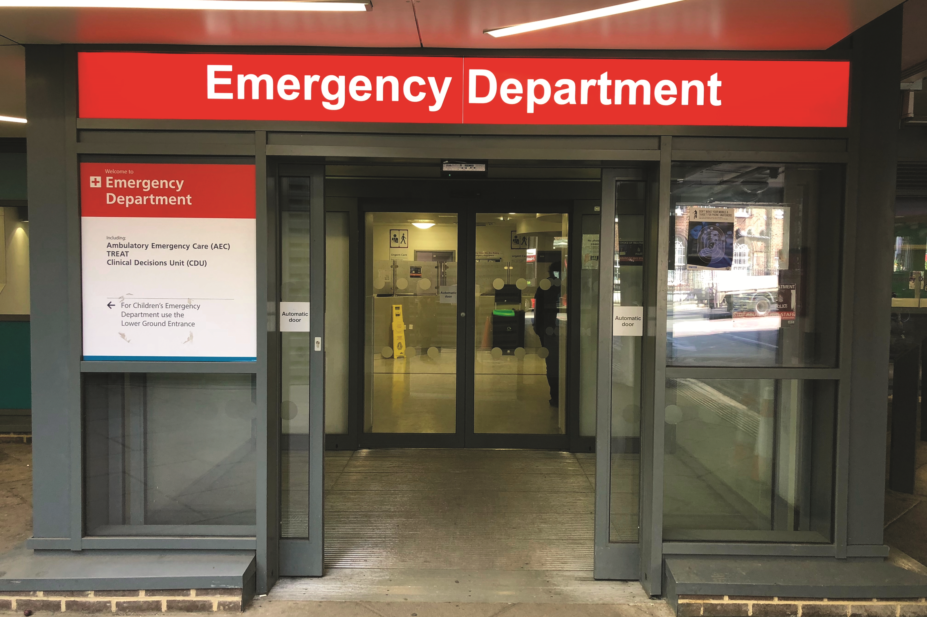
Shutterstock.com
The Royal College of Emergency Medicine (RCEM) has said it will rewrite a position statment on the use of pharmacists in emergency departments which has been criticised as “disappointing” and “not patient-centred”.
The policy, issued in April 2019, said pharmacists should not see new emergency department patients unless the case specifically relates to medicines.
It also said that it does not support the use of pharmacists to treat emergency department patients “de novo” (from the beginning), except for issues directly pertaining to usage of medicines”.
But following criticism, the college has said it will redraw the policy statement and it is considering expanding its advanced clinical practitioners (ACP) scheme to include pharmacists later in 2019.
The RCEM says that it recommends the use of dedicated emergency department pharmacists to “work as part of a multidisciplinary team to help support the safe and efficient delivery of care to patients in the emergency department, as well as in clinical decision units and observation wards”.
Dan Greenwood, a graduate teaching assistant at the University of Manchester, who led a study that found that pharmacists were designated care providers for more than a third of patients in emergency departments, welcomed the RCEM’s emphasis on the pharmaceutical activities that pharmacists can contribute to emergency department patient care.
“However, given that there is a shortage of healthcare professionals to manage emergency department patients, and that pharmacists can — and do — manage certain emergency patients, [the] RCEM’s view that pharmacists should not manage patients de novo is not a patient-centred one,” he said.
“The RCEM position statement is a step in the right direction, but is certainly politically charged.”
Mark Borthwick, consultant pharmacist in critical care at Oxford University Hospitals Foundation Trust, said it was “fantastic” that the college was endorsing the role of pharmacists in the clinical area they work.
But he added: “It is disappointing that the statement doesn’t recognise the increasing role of prescribing among pharmacists, and actually actively discourages extended roles even though there are some pilot studies that find pharmacists can manage 8% of the emergency department workload as a prescriber, and up to 36% of the workload with a little extra training.”
Commenting on the position statement, Anne Joshua, head of pharmacy strategy at NHS England, cited a Care Quality Commission (CQC) report into urgent primary care services, published in June 2018, which said the use of pharmacists in delivering emergency care “can give patients faster access to advice from a [healthcare] professional in a variety of healthcare settings”.
“With additional training, pharmacists can provide urgent care under medical supervision as part of a multidisciplinary team,” the report adds.
Joshua added that the CQC report was a “real challenge to the [RCEM]”.
Chris Moulton, vice president of the RCEM, said the college valued pharmacists as “highly skilled healthcare professionals” who can fill a wide variety of roles in the emergency department.
He said the “most contentious” part of the college’s position statement was pharmacists’ role as primary practitioners in emergency care. He confirmed that the position statement would be rewritten.
“We think the right way for pharmacists to be primary practitioners is to go down the ACP credentialling route,” he said.


